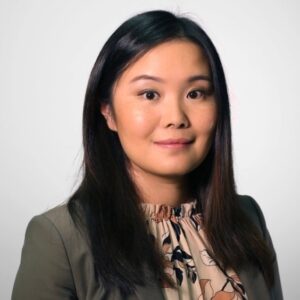 Amber Li
Amber Li
Founder & Principal Consultant
AmberEd College Counseling (CT)
What drew you to the world of college admission counseling?
College admission counseling is my second career. I formerly worked in Silicon Valley as a data scientist. While I was with the LinkedIn Higher Education team, I started providing career counseling to college students and fresh graduates, many of whom were Asian American and international students, due to our shared background.
When I relocated to New England for family reasons, I debated whether I should continue data science or try something that would grow better in the college town where we were living. So I started to research options and found college admission counseling to be a great choice. My prior career counseling experience was also instrumental in this career transformation.
My mind was made up one day when I browsed the directory of IECA (Independent Educational Consultants Association). I knew Asian American families were known for emphasizing their children’s academics and college admissions, yet I barely saw any Asian last names in the directory. That was my eureka moment—I realized that there were already many Asian data scientists but only a few Asian IECs. I knew it was THE job for the rest of my career and I knew that I could make a difference.
What is your favorite part of the job?
I enjoy working with students on their college list-building best. It is very analytical work, with quantitative data input like GPAs, test scores, and EFCs, and also qualitative data input like college characteristics, geographical and cultural preferences, etc. I always have fun playing with the data and researching to develop those long lists.
Almost all students return their short lists following a Poisson distribution, aka, with so many reach schools and only one or two target or safety schools. It takes time for students to truly accept the idea of building a balanced list, but most of the time their final lists follow a bell-shaped Normal distribution, with more target schools and a few safety and reach ones! To me, the most mind-blowing part is that I get to learn and appreciate the young students’ aspirations and watch them adopt pragmatism through the process.
How has NACAC played a role in your career?
NACAC is the broadest platform that connects all college admission counseling professionals in the US and many other countries. As a newcomer and an independent educational consultant, I feel the recognition and also find a sense of belonging from being a member of the NACAC family.
There are three aspects I’d love to explore more within NACAC.
(1) Professional Development – Learning opportunities like the International University Advocate certificate program will help build up my knowledge base.
(2) SIGs – I gain synergies when I have in-depth idea exchanges with colleagues in a few NACAC Special Interest Groups. My favorite one is the Asian American & Pacific Islander SIG!
(3) Research and Publications – I often read articles from the Journal of College Admission, even before I became a NACAC member. I have been researching how to use LinkedIn big data to counsel college and major decisions and have been piloting this process with students and counselors. I hope to get my findings published in the JCA in the future.
What do you think is the biggest challenge facing our profession today?
Career and technical education (CTE) hasn’t been taken seriously in the US. While I am an advocate of liberal arts education, I see the value of CTE and feel it hasn’t gotten the adequate attention it deserves in the classroom. Therefore, it’s hard to provide students with in-depth college counseling based on their CTE comprehension.
CTE is absolutely not just for at-risk students, nor does it mean technical skills only. It helps students bridge the knowledge they learn in class with the desired skillsets in the field. Such career awareness matters dramatically when students make college, field of study, and financial decisions.
College counseling is not just for a handful of high-fliers who could easily find well-paying jobs and repay student loans quickly. For the great majority, college counseling means finding best-fit solutions within all constraints, especially affordability. We talk about the student debt crisis all the time, and I believe CTE could play a fundamental role in its mitigation. And I’d love to see more discussions and resources for CTE in both curricula and college counseling practice.
When you aren’t working, what do you like to do?
I enjoy traveling, especially solo traveling immensely. When I am away from home and traveling alone, I meet new people and mingle with them to learn the local languages and cultures. I need to research the itinerary and be prepared for unexpected circumstances. Going out of my comfort zone can be challenging but absolutely exhilarating.
Solo traveling is my secret weapon to recharge. I hope to resume this soon after the pandemic. Meanwhile, a campus visit, even a day trip to a local college town, also brings me tons of joy and energy, apart from the work-related professional development.
If you could be any fictional character, who would it be and why?
Tom Cat in the Tom and Jerry series. It is the first American series of comedy short films I watched when I grew up in China in the 1980s and 1990s. I always admired how Jerry outwitted Tom when I was young, yet I adore Tom much more as I age—he is not the smartest, but he is determined and rarely gives up. When the real danger occurs, Tom cares about Jerry and others wholeheartedly.
Tom is obviously not a perfect character, like those I was lectured to inspire to when I was young. But I guess I love his big heart and genuineness.
Published Aug. 15, 2022